Microsoft Surface Pro 3 Review
by Anand Lal Shimpi on June 23, 2014 3:55 AM ESTLaptop Performance
Just like with battery life, we need to evaluate the performance of Surface Pro 3 as both a laptop and a tablet. As a laptop, Surface Pro 3 delivers performance comparable to other Ultrabooks of similar specs - assuming we're talking about short bursts of performance. In prolonged workloads you'll see a bit of a gap, and even a slight regression vs. Surface Pro 2 due to the thermal design targets for the new chassis.
With the exception of the Work suite in PCMark 8 v2, we're mostly looking at performance in the range of a 13-inch MacBook Air - the prototypical Haswell ULT notebook. Surface Pro 3 is definitely in good performance company. In the Work suite however the MacBook Air (running Windows) is able to deliver around 16% better performance than Surface Pro 3. I'm guessing this has to do with thermals more than anything else.
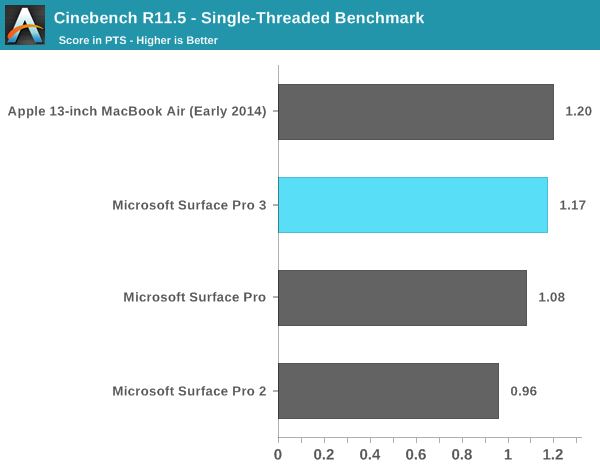
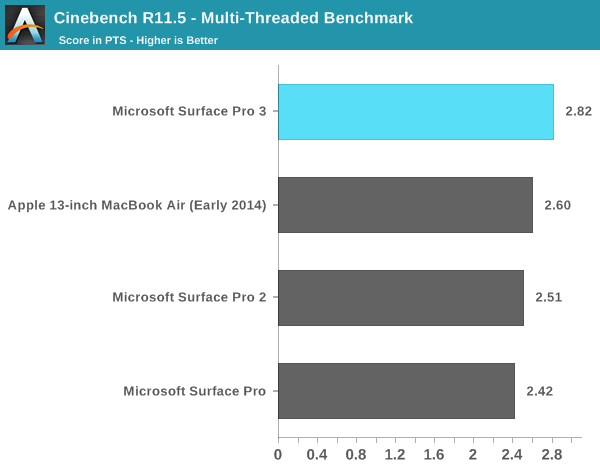
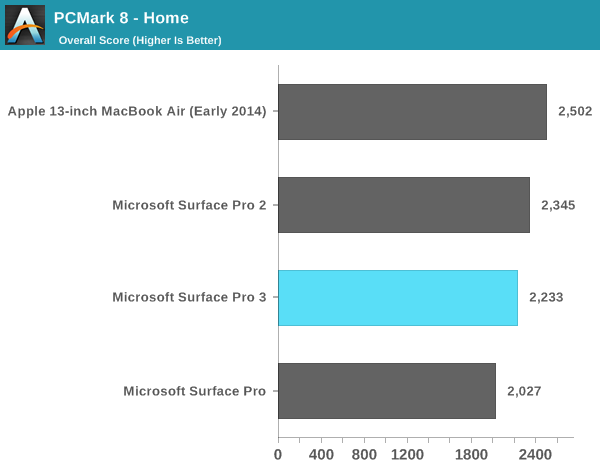
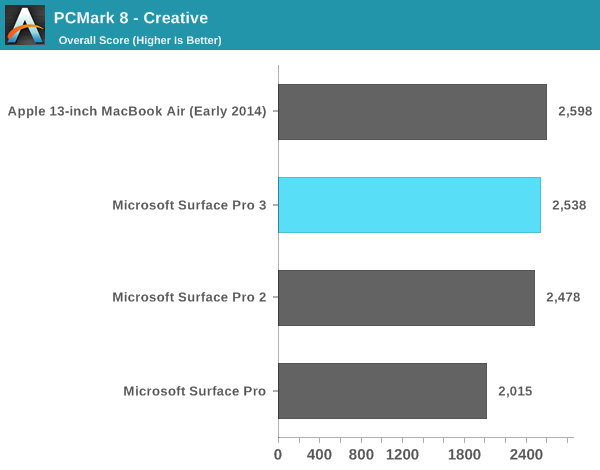
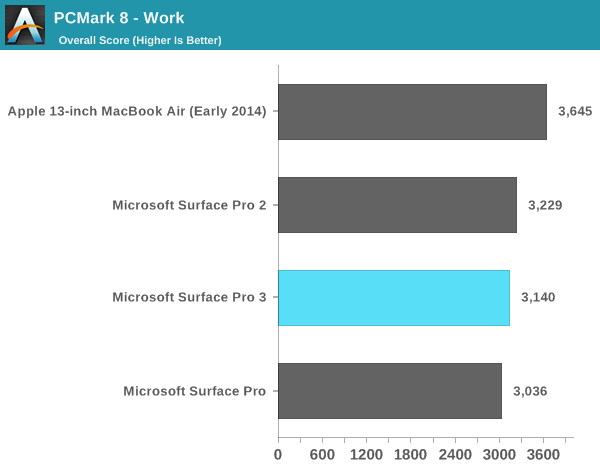
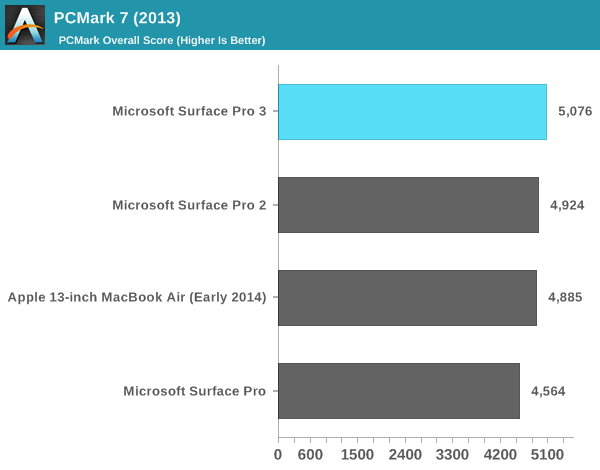
We see a similar story if we look at GPU performance:
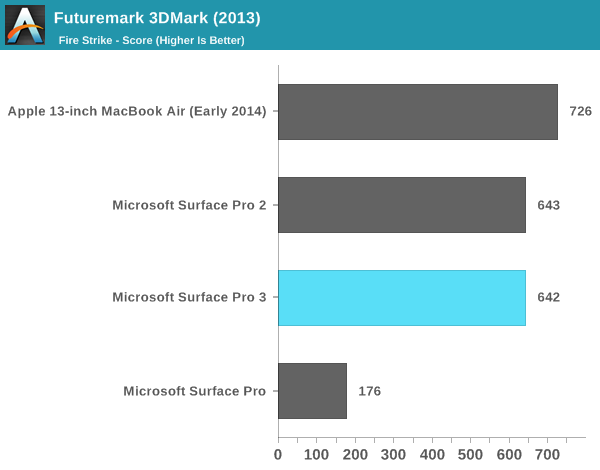
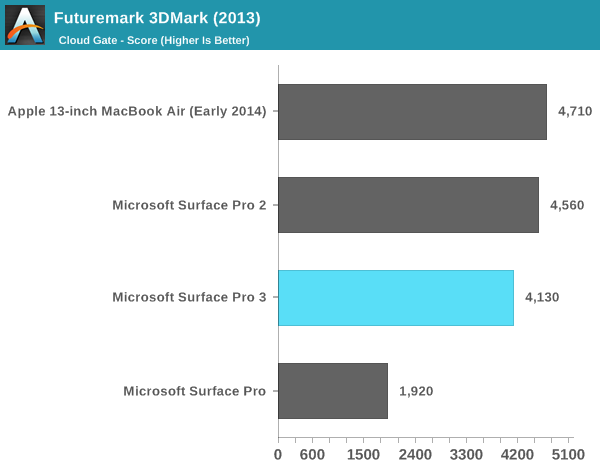
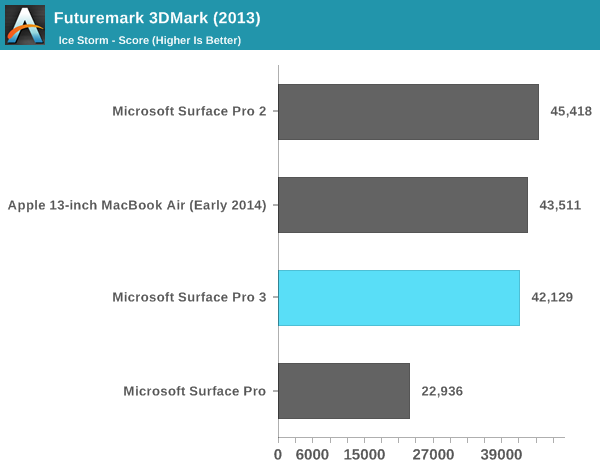
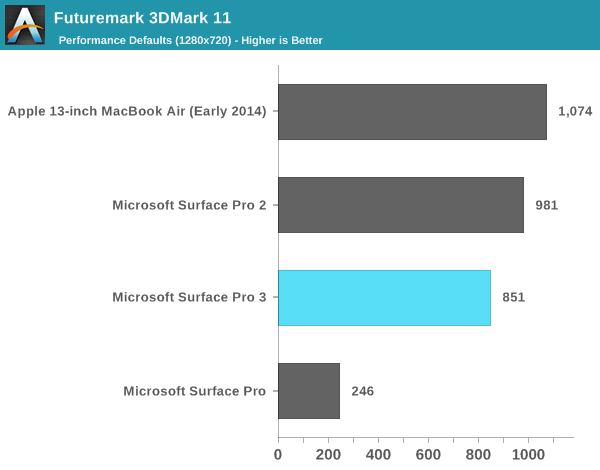
In terms of playable games, with some tweaking to detail settings you should be able to average 30 fps in titles like Dota 2. Running at the panel's native resolution is generally out of the question but for lighter titles on Steam like Transistor, you can have a reasonable experience. The higher end Core i7 Surface Pro 3 does ship with Intel's HD 5000 graphics instead of HD 4400 in the Core i5 review sample I tested. It's entirely possible that we see better gaming performance or thermal management (more EUs at lower voltage) in that design.
Just like in previous designs, Surface Pro 3 integrates a SATA SSD (likely M.2 this time). In this case Microsoft uses an OEM version of Samsung's SSD 840 EVO, a 3-bit-per-cell MLC design that we've found to be a pretty good value. I am disappointed we didn't see a move to PCIe storage but for general use I doubt there's much value in it. PCMark 8 v2's storage test isn't particularly stressful but it does show that Surface Pro 3's SSD is at least competitive with its predecessor and the MBA despite moving to TLC NAND.
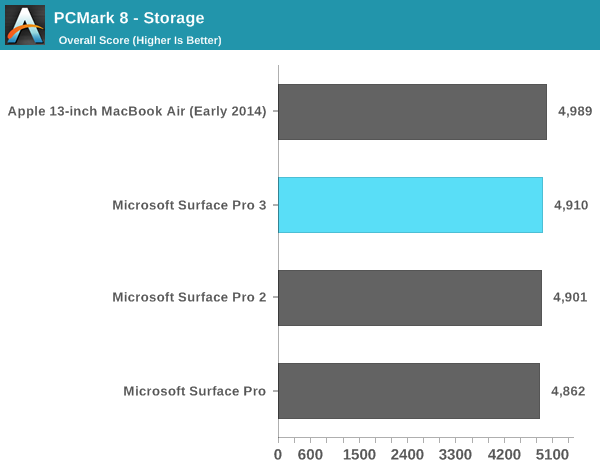










274 Comments
View All Comments
ymcpa - Monday, June 23, 2014 - link
Tegra is ARM and that means you will be using windows RT and won't be able to run desktop apps. You can get a Surface or Surface 2 which cost a lot less than the Pro 3.lmcd - Tuesday, June 24, 2014 - link
A K1 would be a lot less compromises...ymcpa - Tuesday, June 24, 2014 - link
A K1 is an ARM processor. Therefore, no x86 apps. The device would just be a pure tablet. How is that less compromises?lmcd - Sunday, June 29, 2014 - link
Less compromises than the other options he suggested, duh. K1 vs T4 is rather silly to even wonder about.edwpang - Monday, June 23, 2014 - link
What about disk space usage? Does it use WIMBoot?chizow - Monday, June 23, 2014 - link
This is the first Pro I've considered buying. Hope they validate them at work so I don't have to go out-of-pocket, but I'll pick one up either way. Definitely agree the Type Cover should come standard though! Especially since they'll probably release a battery cover shortly after.nerd1 - Monday, June 23, 2014 - link
Wait, we have waited ONE DAMN MONTH and get only 8 page review? For one of the most anticipated devices for year? Is anandtech short on manpower?I always enjoyed anandtech review over anything, but now I'd rather surf user forums for through analysis...
XabanakFanatik - Monday, June 23, 2014 - link
I feel the same way. It looks like they didn't actually listen to any of the comments they requested for review ideas. Where are the comprehensive benchmarks? Why did they only benchmark Dota 2? Why did they not provide a thorough thermal profiling of the device showing average and maximum temperatures under tested loads? Why couldn't they include a simple crystaldiskmark run of the ssd?I mean, I can run Intel XTU with prime95 and get a graph that gives me a solid thermal profiling in about 5 minutes, showing temperature to clock speed to TDP or thermal throttling.
You've disappointed me, Anand.
mkozakewich - Monday, June 30, 2014 - link
And they only compared battery life and power to the iPad and Macbooks, for most of it, rather than other competitors like the Yoga Pro.Actually, I don't think they've even mentioned other convertible PCs, they're just trying to prove it's a valid ultrabook first.
jeffkibuule - Monday, June 23, 2014 - link
Battery life tests take a LONG time, during which you cannot use the device.